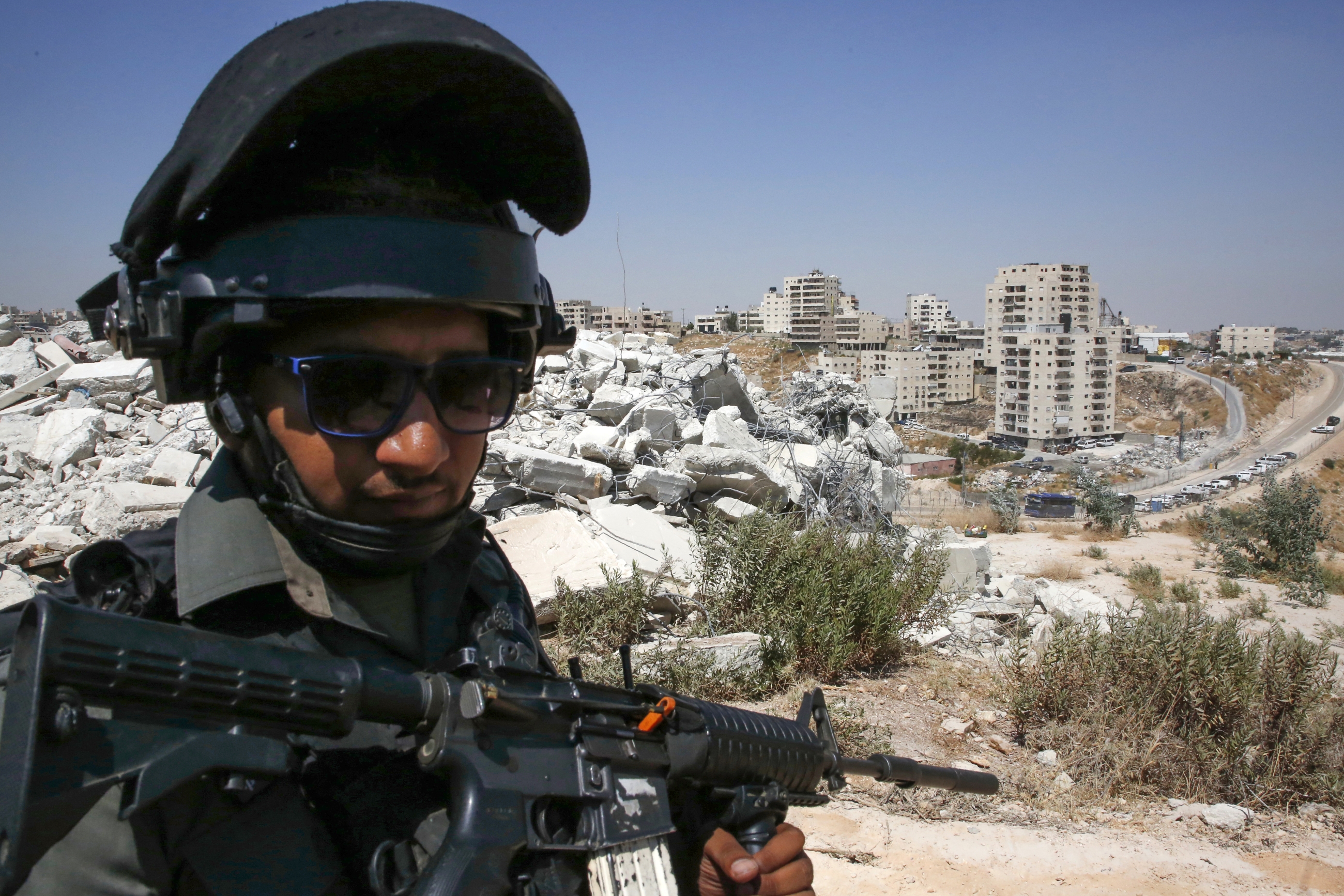Israeli secret service says it exposed Iranian-Palestinian spy ring

A plan by Iranian intelligence to recruit Palestinians within Israel and the occupied West Bank and Gaza has been exposed, Israel's domestic intelligence service said in a statement on Wednesday.
Shin Bet did not give the number or identities of suspects, or say if any had been arrested or charged, but said that the alleged Iranian-run operation was discovered "in recent months".
"The network was based in Syria under Iranian guidance and was led by a Syrian operative nicknamed 'Abu Jihad'", it said.
"It attempted to recruit people via preliminary contacts based on fictitious Facebook profiles and - later - messaging apps.
"The affair joins other recent events in which terrorist elements (including those from Hamas and Hezbollah) have established contacts with Israeli Arabs and Palestinians over the internet in order to recruit them for intelligence gathering and terrorist activity," the statement added, using a common Israeli term for Palestinian citizens of Israel.
New MEE newsletter: Jerusalem Dispatch
Sign up to get the latest insights and analysis on Israel-Palestine, alongside Turkey Unpacked and other MEE newsletters
Shin Bet said that those contacted were asked to gather data on sites such as military bases and police stations with a view to providing Iran with potential Israeli targets.
'The decisive majority of Israeli citizens refused to cooperate'
- Shin Bet
"The decisive majority of Israeli citizens refused to cooperate," it added.
Palestinian citizens of Israel - who number more than 1.3 million, about 20 percent of the population - are the descendents of Palestinians who were able to remain on their land when Israel was established in 1948.
Israel considers Iran its arch-foe and has carried out hundreds of strikes in neighbouring Syria against what it says are Iranian and Iranian-backed forces.
It has vowed to keep Iran from entrenching itself militarily there.
On Sunday, Israeli cabinet minister Tzachi Hanegbi boasted on public radio how his country had been killing Iranians for the past two years.
"We strike the Iranians hundreds of times in Syria," he said in an interview. "Sometimes we acknowledge it and sometimes foreign reports reveal it."
Syria's state news agency said that Israel fired missiles at Syrian military positions held by the government and its allies early on Wednesday.
The missiles were fired into southern Syria, close to the Israeli-occupied Golan Heights. Israel's military declined to comment.
Spy rings
Last month Israeli military prosecutors charged a Palestinian-Jordanian accused of working to set up Iranian spy networks in Israel and the occupied West Bank.
In 2018 Israel charged three Palestinians with planning "terrorist" attacks on behalf of Iran, and in 2015 an Israeli court sentenced an Iranian-born Belgian citizen to seven years in prison for spying for Tehran while posing as a businessman.
In February, a former Israeli minister was sentenced to 11 years in prison for spying on behalf of Iran.
Gonen Segev, who served as energy and infrastructure minister from 1995 to 1996, had previously agreed to a plea bargain on charges of serious espionage and transfer of information to the enemy.
In 2004, he was charged with trying to smuggle 30,000 ecstasy pills into Israel from the Netherlands using a diplomatic passport with a falsified expiry date.
The following year, he admitted the charges as part of a plea bargain.
Segev's motives in the Iran spying case were not made clear and many details of the case have been kept secret.
Shin Bet previously accused him of providing Iran with "information related to the energy market, security sites in Israel, buildings and officials in political and security bodies, and more".
Middle East Eye delivers independent and unrivalled coverage and analysis of the Middle East, North Africa and beyond. To learn more about republishing this content and the associated fees, please fill out this form. More about MEE can be found here.





